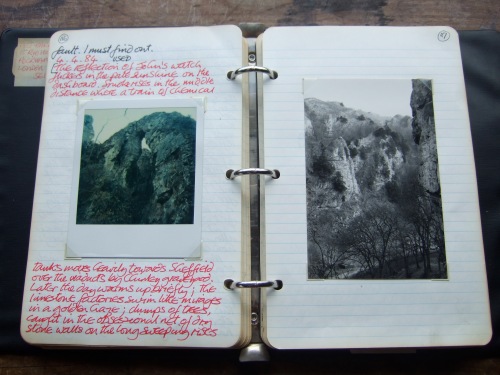While I still lived with Pauline we went to a “psychic” who gave demonstrations on most weekdays in the North London area. He appealed mainly to women who found they had nothing to do in that part of the afternoon which sags out — especially in winter — between the hairdresser and the children’s tea, and he preferred to work in clean but draughty modern halls, panelled with light wood and smelling of polish, used in the evenings for other functions: lectures, Bubuek films, political meetings. There would be a shrouded projector at the back, thick blue velvet curtains, a lectern pushed to the side of the platform.
Sleet touched the tall windows the first time we went. That was in Golders Green, and darkness was already drawing round some shrubs and a bench in the gardens outside. It was odd to sit there at three o’ clock in the afternoon among all those women. It had a kind of intimacy.
“Now give him the benefit of the doubt,” Pauline had warned me on the tube from Camden. “Or you can just stay outside. It’s only an hour.”
He was a man of about fifty five or sixty, tallish, who wore an old-fashioned tweed jacket and whose resonant but haggard professional voice sometimes took on a nicely-judged edge of irritability. He had a practical face: but it was so white and bony you thought immediately of a terminal disease, and of all his practicality committed there, to the control of his own panic. It was his own panic, I suppose, that enabled him to recognise theirs.
“I think we could have the curtains closed,” he said.
His method was to work his way along the rows saying to one woman, “You have what I call the artistic temperament,” and to another, “You have just returned from that so-difficult trip abroad you feared.” He stood awkwardly in the middle of the platform and picked them out by pointing to them, two or three from each row. “Well, there was nothing to be frightened of, was there ?” Clearly he was guessing these things from an item of dress or a sun tan; neither did he hide the fact that many of the women were already regulars of his, with habits and circumstances known to him. “Did he buy you that ring in the end dear ? And was it that ring ?”
Yet they sat so patiently, relaxed by the distant hum of traffic making its way down endlessly into the city, nodding and laughing and exclaiming to encourage him. If they couldn’t immediately relate to their own lives the things he said, they signalled by willing frowns that they were prepared to puzzle over it. It was after all an insight and they were not going to waste it. It seemed quite sufficient to them.
“You’re a woman of the world dear and you know how to help him. I can say that to you I think, can’t I, without giving offence ?”
He could.
As his hour wore on he sometimes prompted them openly. “I see a lady. An old lady. Yes, I see and old lady and she. Yes, she isn’t very well. An old lady in a room. In a room upstairs.” Used up in his own struggle to keep from evaporating away, he looked along the rows of seats for help. “Now does anybody here know an old lady like that ? I do sense her very strongly, very close. She’s very close to us now. Does anybody remember an old lady like that ? Yes dear ? Does that mean something to you, dear ? Does it ? She’s in a red dressing gown and she’s reading a book. I can tell you that if it helps. Is it a bible dear ? Does that mean anything to you?”
By now it did. Someone had recognised this spectre as her grandmother, seen once in childhood, after that never again.
“Well she thinks it’s time to sell that thing you were talking about, dear,” he said. And then, producing their previous exchange, at Belsize Park a week before, as if it was in itself a psychic sleight of hand: “You remember we talked about it last time ?”
“Oh yes,” she whispered, delighted.
The women near enough to hear her nodded at one another significantly, and also with a sort of angry commonsensical triumph. This was the advice they would have given, all along.
Whenever he felt their attention begin to wander he jerked his head up as if he could hear a voice and said impatiently: “It’s no good. I can’t tell what you want if you don’t speak clearly.” The effort to hear was costly, and made him seem even more ill. It gave his face the inanimate look of a mask, or a painted balloon on a piece of string which someone had tugged sharply towards one of the upper corners of the room and then released. He asked the women puzzledly, “Is there anyone here called Erica or Eileen ?” They stared at one another. This time, though they were sympathetic, they were unable to help. One of them had a daughter whose name was Eveline. But the message, elusive, garbled, fragmentary, sporadic as a twitch, didn’t seem to be for her.
[From Climbers, preorder here.]







